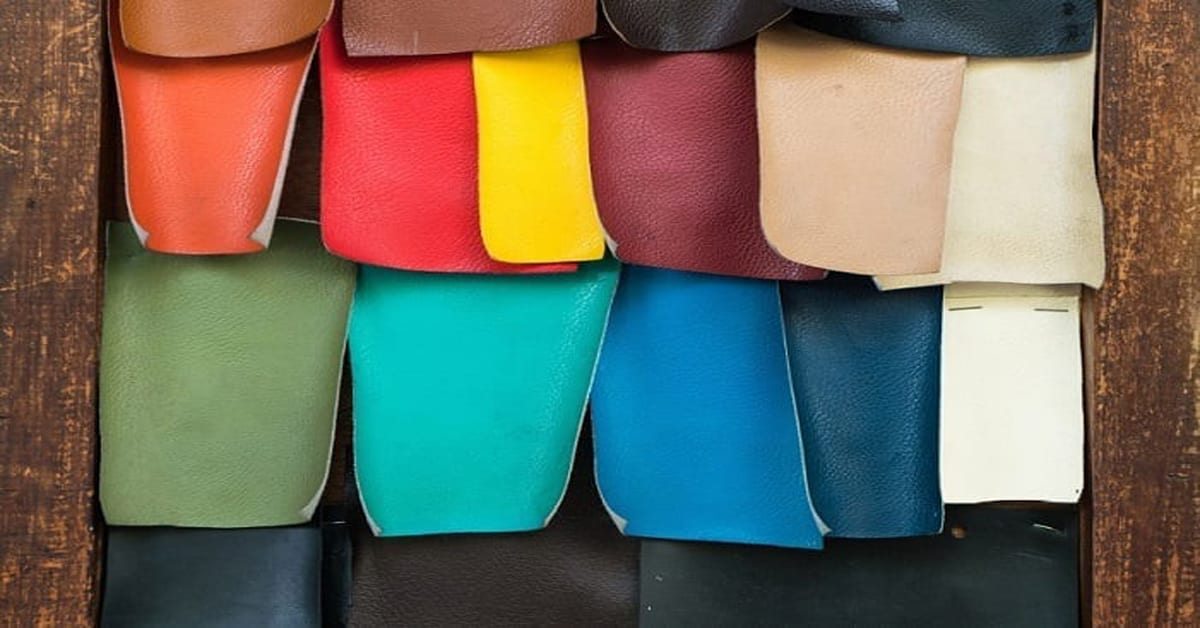Fashion is an important personal expression. But for advocates of a social and environmental cause, it goes beyond that. It is a movement. That said, those who are choosing a sustainable lifestyle are dressing up not just for themselves. They are covering up to unveil the natural beauty of the planet.
One intriguing material in the fashion industry is genuine leather. When using this material, are we really dressing to “kill” the Earth? Let’s find out.
Leather as a Hot Issue
Genuine leather has quite the fame in the fashion industry. This layer of animal skin is commonly made into bags, jackets, shoes, belts and more. It can be an accent, or turn into a highlight of a merchandise. Whatever its role in a fashion piece, it has triumphed in the industry.
However, because obtaining leather has a dark past, people are starting to be skeptical of using this. Condemn for this material grows, as the world is becoming more socially and more environmentally aware. Here are some specific reasons why people refuse genuine leather:
- Animals may be treated wrongly just to source the leather.
- Tanning leather causes pollution.
- Leather is not an animal byproduct.
- Leather is almost impossible to biodegrade because of the chemicals added to it.
Are these still true today?
In response to this, President Stephen Sothmann of Leather & Hide Council of America, discussed with us the truth about leather and vegan leather.

He said: “Leather…is a very misunderstood product. Especially for people who have chosen a vegan lifestyle, we understand that they do not want any animal product on their fashion or their food…I think leather has gotten a bad reputation and kind of undeserved reputation in some ways. There’s a lot of things said about the industry that aren’t true now or have not been true for many decades.”
Sothmann said that the vast majority of leather used worldwide are produced under ecological conditions with emphasis to closely monitoring chemical use, and application of ethical and sustainable practices.
What is vegan leather?
Despite the enormous shift on how genuine leather is produced, many are eyeing a possible eco-friendly option—vegan leather.
Technically, vegan leather is not leather. Sothmann emphasized that by definition, leather is a material derived from an animal skin. Meanwhile, vegan leather was introduced in the market as a material manufactured to resemble leather, but is made of materials other than animal skin. There’s a wide range of resources claimed to produce this alternative such as cork, mushroom leather, apple leather, grape leather, pineapple leather, or lab-grown leather.
Issues with vegan leather
With the term “vegan” attached to its name, vegan leather sounds like a sustainable product. With regards to this, Stephen Sothmann warned: “They are much worse for the environment, much worse for the animals in the long run because they are always made from plastics and other petrol chemicals.”
- Oil-based manufacturing is involved.
In 2018, a news exposed that synthetic materials, such as vegan leather, causes more harm than using byproducts from animals. According to the Measuring Fashion report, the apparel and footwear industries combined account for 8% of the global greenhouse gas emissions. This is due to the excessive use of oil in the manufacturing process. So even though they are alternatives, the vegan leather you might be using is sloshing from oil.
2. The components used in vegan leather are non-biodegradable and plastic.
Next, even with plant-based materials included, larger portions of plastics or polyvinyl chloride (PVC) are used compared to the raw material. Sothmann reminded us that the materials used in binding them are synthetic. In addition, fossil fuels are involved in making them. Lastly, they are non-biodegradable. The tiny particles that wears off this material will go into the ocean and cause microplastic pollution. In the long run, they are cruel to the marine life.
3. Vegan leather has a short scale in the market.
Most vegan alternatives for leather are still yet to be tested. Many ethical brands cannot have them yet as they are not yet available in the market supply. Even when they are finally introduced in the market, it will be rare to find and can cost a fortune.
4. Aesthetic and quality of vegan leather infused product may be compromised.
Due to the difference of makeup, vegan leather offers a different feel and look compared to the traditional one. Most products available in the market is actually not appealing to the masses. So, quality-wise, vegan leather is a no.
5. It’s more of a marketing strategy rather than a social cause.
Vegan leather are labeled cruelty-free, plant-based, and sustainable in the market. However, they aren’t technically true due to a number of perilous components and processes involved in producing them. A lot of companies are hiding oil-based materials behind plant materials. They claim they are plant-based but majority of the ingredients are harmful chemicals.
Why should you buy genuine leather?
Genuine leather may be more ethically produced than vegan leather. Meat is a primary source of protein and they will be continuously consumed in the future. It has always been a part of the history of human consumption. Therefore, livestock is not produced for leather, but for meat. Leather is a byproduct of that process. As Sothmann described, “it is our ethical duty to use those.” To make sure that nothing goes to waste in the meat industry, hides are made into leather so as to use everything from the animal responsibly.
When someone chooses vegan leather over genuine, they are not saving any animal from being produced as animals are not raised for leather.
How sustainable is the leather industry?
There is an evolution on the ways of how the leather industry works. Its processes have been realigned to adhere to ethical and sustainable standards. Stephen Sothmann says, “the industry has set up a number of certification programs and schemes that allow producers to show to an independent auditor that they are acting in an ethical and sustainable ways.”
For instance, the existence of Leather Working Group (LWG), a multi-stakeholder initiative, regulates the leather production involving brands, suppliers, manufacturers, NGOs and end users. They assess these stakeholders using an audit protocol that examines areas concerning environmental compliance and performance capabilities of tanners. They also perform a viral role in promoting sustainable environmental business practices within the sector.
Meanwhile, organizations for a sustainable cause are keeping an eye on stakeholders of the leather industry. Aside from LWG, Tanners Extract Producers Federation (TEPF) is keen on spreading the best practices on tanning leather; while Novo Campo is committed on ensuring sustainable practices on cattle to reduce deforestation in the Amazon region. These organizations are made visible and welcomed in the industry.
Animal welfare is taken seriously in the modern leather industry. Organizations performing for this cause interventions as needed, to make sure that livestock involved in the leather industry are raised in an ethical environment. Moreover, the rise of support to local farmers are more evident than ever.
Chemical use is also regulated in the industry. Tanning companies are closely monitored so that the use of chemicals are adequate and do not pose harm in the environment.
How can consumers be sustainable in consuming meat products?
First, consumers should understand that animals are raised for a reason. They are the natural upcyclers and through consuming them, it is possible for us to utilize the energy and nutrients coming from grass that humans cannot eat. It’s a natural part of our diet, so anyone should not be guilty if it is served on their dinner plate.
- Pay attention to what you are buying.
We show our support to sustainable meat consumption if we are extra careful in choosing the meat we purchase. For instance, consumers should do a background check whether the meat product they buy are from brands and distributors that use sustainable practices. For fashion or food alike, we must ensure that the products passed ethical standards from sourcing to packaging.
2. Support local farmers.
Animals raised in farm lands grew in a kinder and more sustainable way. This is true not only to cowhides or cattle, but to the majority of meat products available in the market. Farmers producing for pasture-raised meat have waste management techniques that reduce the emissions that come from animal’s manure.
3. Buy meat products in moderation.
While it’s not wrong to consume meat products, excessive use of this can be environmentally and physically irresponsible. According to the USDA, meat is an important source of protein but should be taken in smaller portions.
Similarly in fashion, genuine leather can be utilized, but at a regulated scale.
About Stephen Sothmann

Stephen Sothmann is the President of the Leather & Hide Council of America (LHCA). In this role, Stephen represents and promotes the interests of the U.S. hides, skins and leather industry before a wide-range of stakeholders, including U.S. and foreign governments, industry trade associations, media outlets, and other organizations related to global leather production and trade. He was appointed to this role in 2013 after serving as Director of International Affairs for three years in a previous iteration of the organization. LHCA is a close affiliate of the North American Meat Institute (NAMI), the nation’s oldest and largest industry trade association representing meat and poultry packers, processors and traders.
Prior to joining LHCA, Sothmann worked as a member of the legislative staff of United States Senator Evan Bayh from Indiana, covering a broad range of economic issues including international trade and agriculture. A native of the state of Indiana, Sothmann received a Bachelor of Arts from Purdue University, a Master of Business Administration from the Indiana University Kelley School of Business, and Juris Doctor from the Indiana University Robert H. McKinney School of Law.




